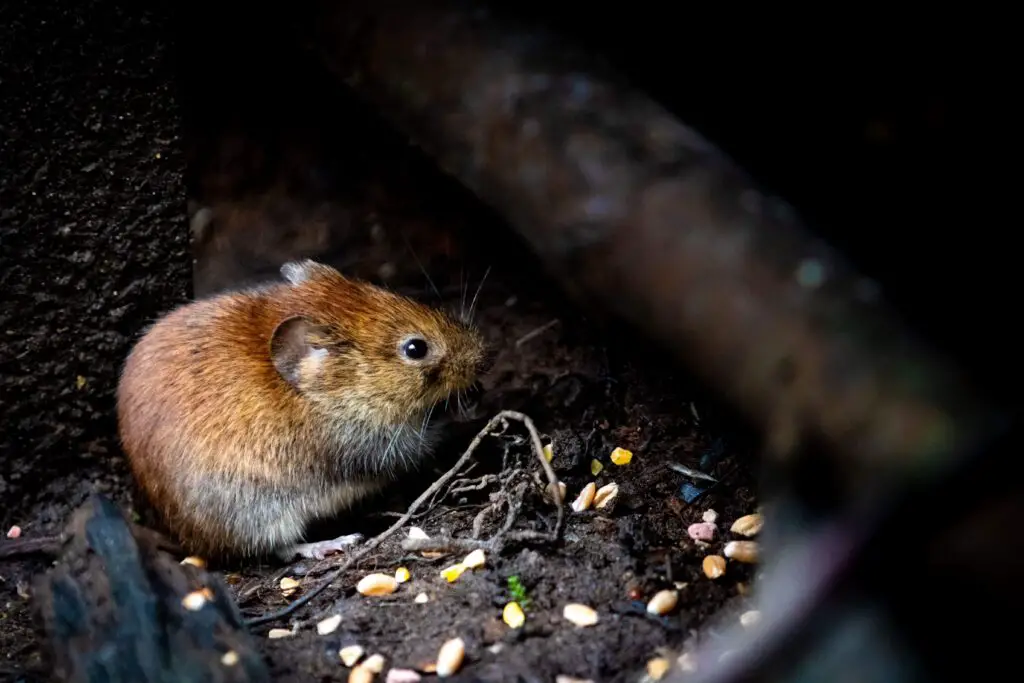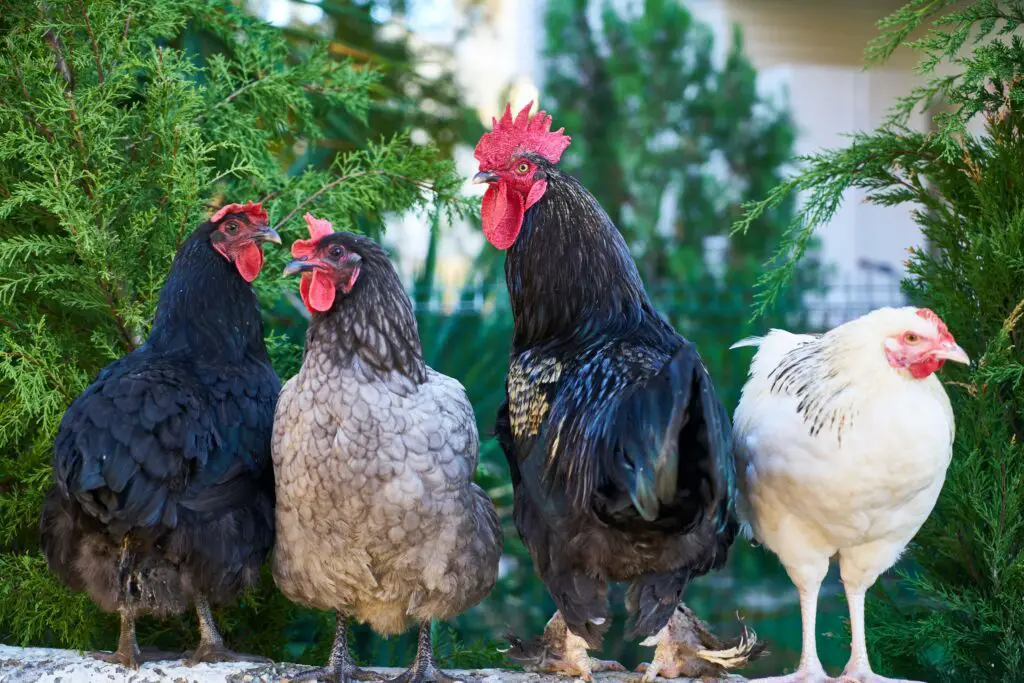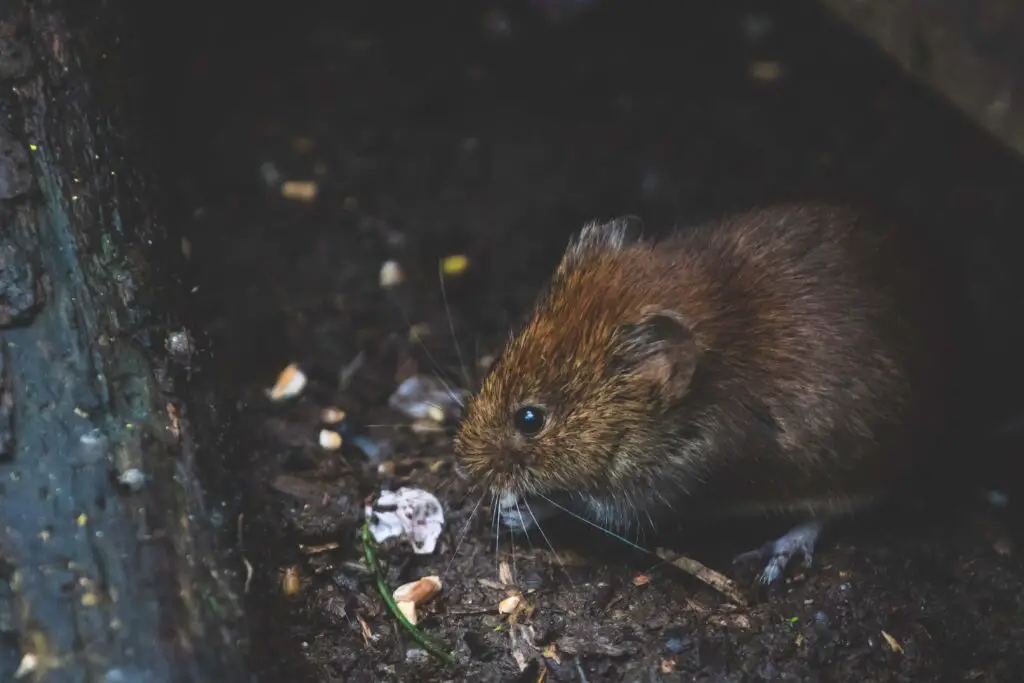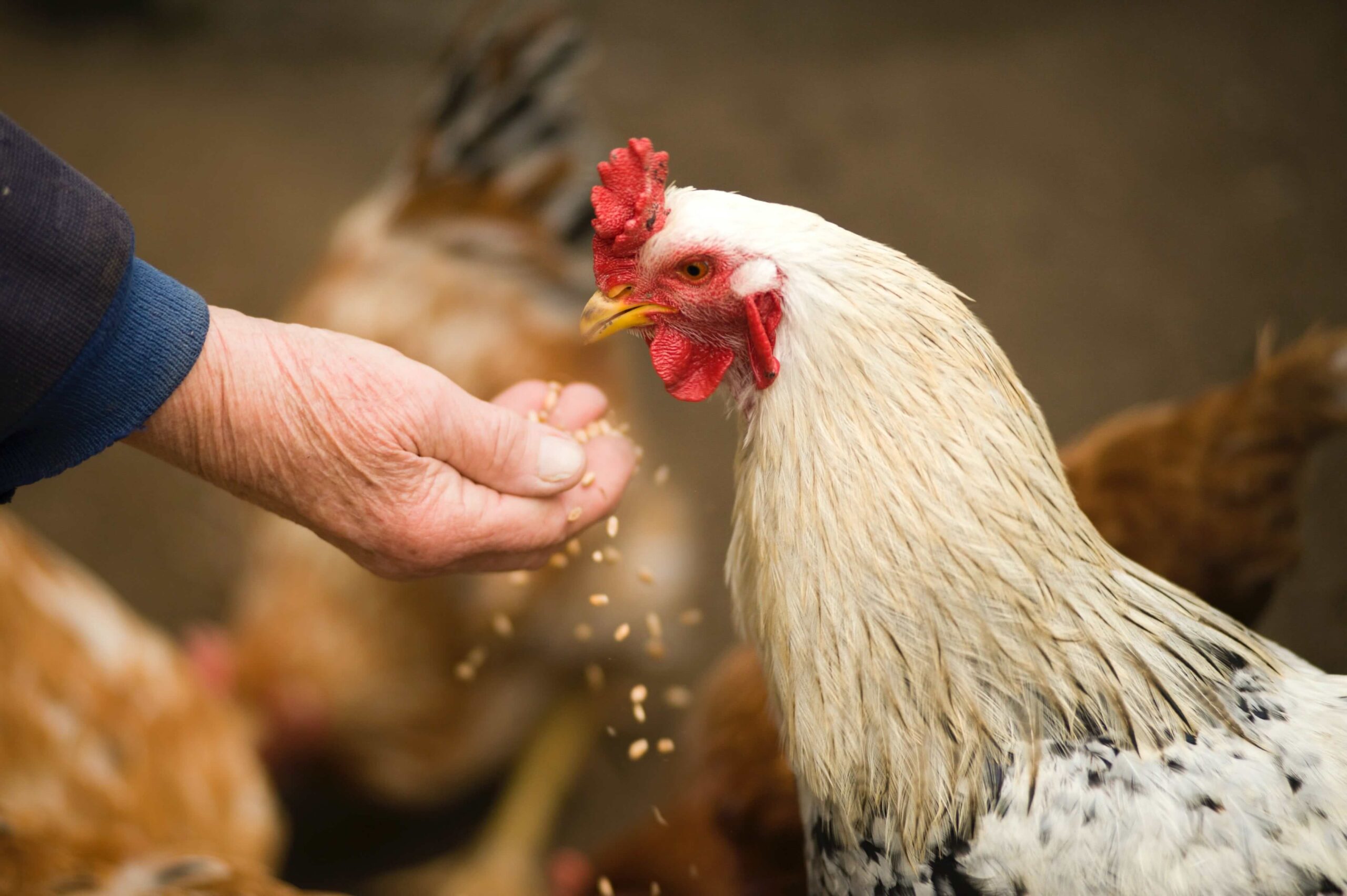While your neighbours chickens attracting rats can seem a small issue, a few rats and mice can quickly escalate into an infestation. Keeping chickens is become a popular hobby especially because of the free free-range eggs. While keeping chickens can be fun and rewarding, it can also attract unwanted visitors…rats.
In this post, I will explore why rats are attracted to chickens, the potential health risks they pose, and what you can do to prevent a rat infestation in your neighbourhood. So, if you’re worried about rats in your area and want to learn more about how to keep them at bay, keep reading!
Do Chickens Attract Rats? Understanding the Problem
Now, let’s take a closer look at if and why chickens can attract rats and the potential health and safety risks associated with rat infestations.
The presence of food and water from chicken feeders and drinkers can quickly attract rats to an area. Additionally, chicken coops provide rats with a warm and secure place to nest, making them an ideal location for rodents to set up camp.
Rat infestations pose a significant health risk, as rats can carry diseases such as leptospirosis, salmonella, and E.coli, which can be transmitted to humans through contact with rat droppings, urine, or contaminated food. Rat infestations can also cause damage to property, including gnawing through electrical wires and causing fires.
Therefore, both chicken owners and their neighbours need to take steps to prevent rat infestations and minimise the risk of health and safety hazards.
UK Laws & Regulations on Keeping Chickens
If you are planning to keep chickens, it is important to be aware of the rules and regulations governing their care and management. These regulations aim to ensure the health and welfare of the birds, as well as minimise the risk of nuisance and public health hazards.
In the UK, the Animal Welfare Act 2006 sets out the legal obligations of chicken owners to provide for their birds’ basic needs, including food, water, and shelter. Additionally, the Poultry Keeping (Welfare) Regulations 2010 provide specific requirements for the housing, feeding, and care of chickens, including guidelines on minimum space requirements, ventilation, and access to natural light.
Furthermore, chicken owners have a responsibility to take measures to prevent attracting rats and other pests. This includes storing feed securely, cleaning out chicken coops regularly, and ensuring that the area around the coop is kept clean and free from debris.
If you are a neighbour affected by rat infestations caused by your neighbours chickens, you may have legal options available to you. You may be able to take action under The Prevention of Damage by Pests Act 1949 and Environmental Protection Act 1990, which places a duty on local authorities to investigate and take appropriate action against nuisances, including rat infestations.

How to Deal With Your Neighbours Chickens Attracting Rats
Dealing with neighbours regarding the issue of chickens attracting rats can be a delicate matter, and it is important to approach the situation with tact and respect for your neighbour’s feelings, as they may not know the rats are going onto your property.
- Communication
It is best to start by having an open and honest conversation with your neighbour about your concerns. You may want to begin by explaining how the rat infestations caused by their chickens are affecting your property, and how they pose a potential health and safety risk to both you and your community.
When speaking to your neighbour, it is important to remain calm and avoid becoming confrontational. It may also be helpful to suggest practical solutions that both parties can agree on, such as securely storing chicken feed, cleaning out chicken coops regularly, and blocking potential entry points for rats. - Follow up letter
If talking to your neighbour doesn’t improve the situation, then you can follow up with a letter detailing the issues with the chickens and rats. You should keep a copy of the letter in case you have to get the council involved.
- Gather evidence
You should gather evidence of the rats and why you believe the chickens are attracting the rats. For example, if your neighbour is leaving chicken food on the floor then you could get evidence of the rats eating the food and then entering your garden. However, be warned that you need to be careful about taking photos of your neighbours private garden. I have an article on how to correctly gather evidence for a neighbour dispute that you can read here.
- Make a complaint with the council
If your neighbour is unwilling to cooperate or does not take the issue seriously, you may need to involve the local authorities to resolve the matter. See the section below on what the council can do to help if your neighbours chickens are attracting rats.
- Pest Control
If the council are not very helpful then I would recommend that you contact a pest control company for advice. They may not be able to do very much if the rats are nesting on your neighbours property but should be able to advise how to prevent the rats from coming into your garden.
In cases where conflicts do arise, it is important to remain respectful and avoid engaging in any hostile or aggressive behaviour. Seeking a peaceful resolution is often the best way to maintain a good relationship with your neighbour.
Will the Council Get Rid of Rats? What Can They Do?
So what can be done when neighbours chickens are attracting rats? While it is primarily the responsibility of chicken owners to prevent rat infestations, local authorities such as the council may also have a role to play in addressing the issue.
The council has the power to investigate complaints regarding rat infestations and take action to prevent or control them. If you are experiencing problems with rats in your area, you can contact your local council’s Environmental Health department to report the issue.
In some cases, the council may be able to issue an abatement notice to the owner of the property where the rats are breeding or coming from. The notice would require the owner to take action to prevent the infestation, which may include removing the source of the problem, such as chickens or improperly stored food.
It is important to note that involving the council should always be a last resort and that seeking a peaceful resolution with your neighbour is often the best course of action. However, if the infestation poses a serious health or safety risk, or if your neighbour is unwilling to take action, involving the council will be necessary.
I have a step-by-step guide on how to make a complaint with the council about a neighbour, which you can read here.

How to Prevent Neighbours Chickens Attracting Rats
There are practical steps that can be taken to prevent rat infestations and minimise the risk of neighbour disputes.
How chicken owners can prevent rats
While there are steps that chicken owners can take to prevent rat infestations, there are also items that can be purchased to help avoid the issue altogether.
Chicken owners can take simple yet effective measures to prevent rats from being attracted to their chickens. This includes securely storing chicken feed, regularly cleaning out chicken coops and the surrounding area, and blocking any potential entry points for rats. Additionally, using rat-proof chicken feeders and drinkers and providing nesting boxes that are raised off the ground can help to deter rats.
One of the most effective items to purchase is a rat-proof chicken feeder. These feeders are designed to prevent rats from accessing chicken feed, which is a common source of attraction for rats. They feature a special mechanism that closes the feeder when not in use, preventing rats from entering.
Another useful item is a rodent-proof chicken coop. These coops are constructed in a way that prevents rats from entering, such as by using wire mesh with small openings or a raised platform. They also often have secure locks to keep rats out.
In addition, it is important to store chicken feed properly in a sealed container that is inaccessible to rats. This can include using metal bins with secure lids or storing feed indoors.
By purchasing these items, chicken owners can take proactive measures to prevent rat infestations and ensure the health and safety of their chickens. It is important to note that while these items can help, it is still crucial for chicken owners to maintain good hygiene practices and regularly clean their chicken coop and surrounding area.
How to deal with rat infestation
Dealing with a rat infestation is not pleasant and while there are several methods to get rid of rats, purchasing certain items can be particularly effective in eliminating the problem.
Rat traps are the the most commonly used item for rat control. Another effective item is a rodenticide, which is a type of poison that is used to kill rats. Rodenticides come in different forms, such as pellets, blocks, and liquids, and should be used according to the manufacturer’s instructions.
In addition, it is important to seal any entry points that rats may be using to enter the property. This can include using wire mesh to cover holes or cracks in walls and floors, or sealing gaps in doors and windows.
It is also recommended to maintain good hygiene practices, such as regularly cleaning up food spills and waste, as well as keeping outdoor areas clean and tidy.
While these items can be effective in getting rid of a rat infestation, it is important to use them safely and responsibly. It is also recommended to seek professional advice from a pest control specialist if the infestation is severe or persistent.

Conclusion
In summary, the issue of neighbours chickens attracting rats is a common problem in the UK, and both chicken owners and their neighbours need to be aware of their legal obligations and take practical measures to prevent rat infestations.
If you are dealing with a similar issue, my recommendation is to approach the situation with patience and understanding. Communicate with your neighbour in a respectful and non-confrontational manner, and suggest practical solutions that benefit both parties. Seeking advice from the council may also help resolve disputes.
Remember, preventing rat infestations and maintaining good relationships with your neighbours requires a combination of practical measures and effective communication. By working together, it is possible to find a solution that benefits everyone involved.
I hope that this article has helped provide you with insights and practical advice on how to address and prevent the issue of neighbours chickens attracting rats.





Leave a Reply